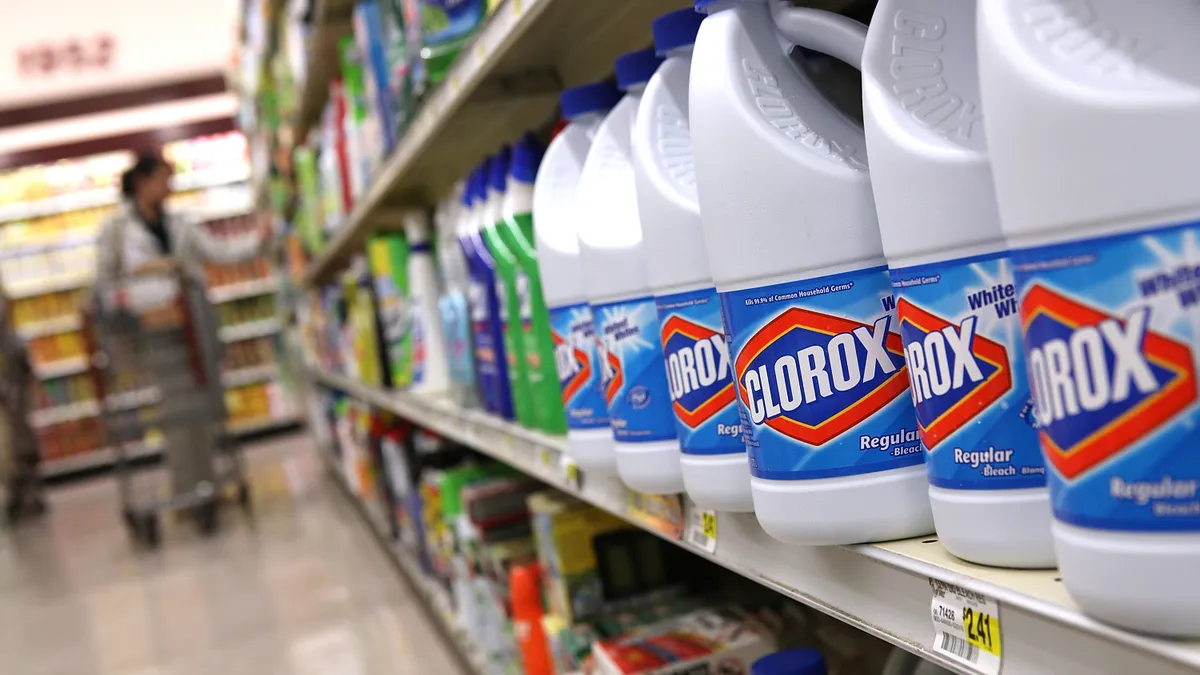S&P Global Ratings lowered its outlook for Clorox Co. to negative last week, citing stock shortages and some lost distribution tied to a cyberattack on the company earlier this year.
With some IT systems going offline, Clorox switched to manual ordering and processing procedures, which slowed its operations. In an August securities filing, the company said that following the attack it faced “an elevated level of consumer product availability issues.”
It took until late September for the company to resume automated order processing for all manufacturing sites to become fully operational again.
By the period ending Sept. 30, Clorox’s sales volumes were down 26% companywide due mainly to the cyberattack’s impact. In its 10-Q, the company said that the “impacts of these system disruptions included order processing delays and significant product outages, resulting in a negative impact on net sales and earnings.”
The resulting shortages and lost distribution led management to lower their forecasts. “Looking forward, our near-term priorities are clear: We are laser focused on rebuilding customer inventories, preserving merchandising activities, and ultimately rebuilding distribution and market share,” CEO Linda Rendle said in a Nov. 1 press release.
Despite their negative outlook for Clorox, which could signal a future downgrade, S&P affirmed the CPG manufacturer’s BBB+ rating for now. Analysts said they believe “Clorox will recover nearly all of its lost distribution and market share.”
At the same time, the analysts said that some retailers “may be hesitant to fully commit to pre-attack shelf space levels until Clorox has rebuilt inventories throughout its system in order to guard against the potential for out-of-stock products.”
They also pointed to uncertainty around timelines as Clorox tries to ramp back up to normal stock levels after the attack.
“Notwithstanding the company's confidence in its supply chain, it is possible the required re-building of inventory could be slower than expected, or unanticipated disruptions could occur given the magnitude of the task,” the analysts said. “We also believe it's possible some retailers may not restock Clorox products — at least not back to pre-attack levels — due to inroads made by other branded rivals or store brands, the latter of which are typically more lucrative to retailers.”
Since the attack, Clorox’s chief information security officer has departed the company. According to Bloomberg and other media reports, the hacker group Scattered Spider has been linked to the cyberattack.















